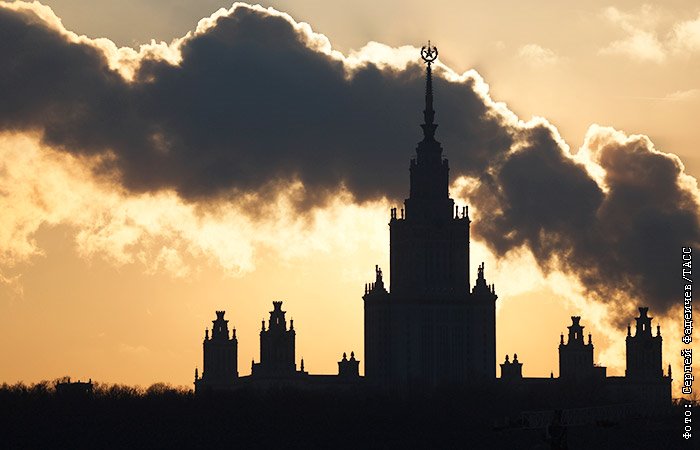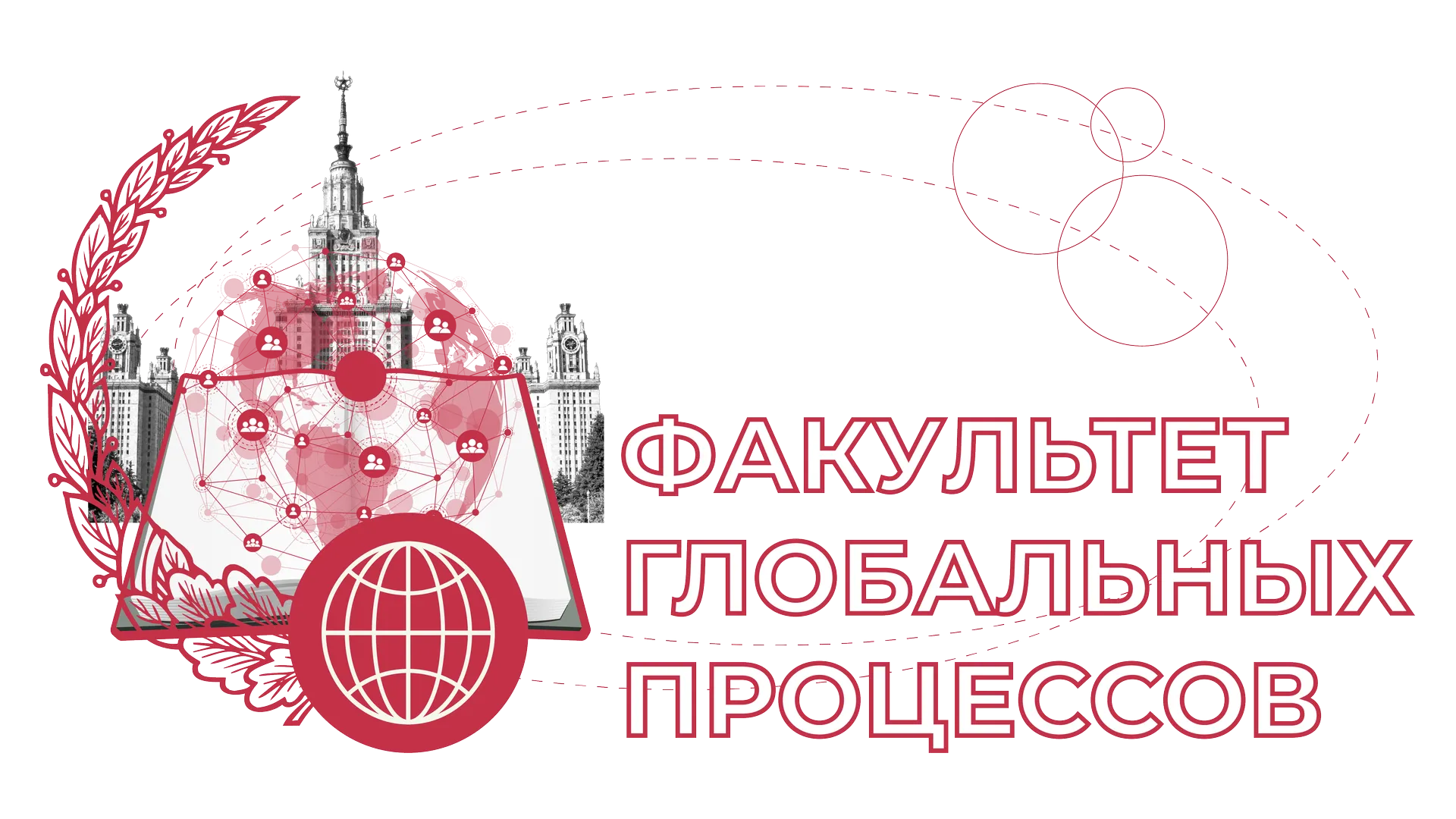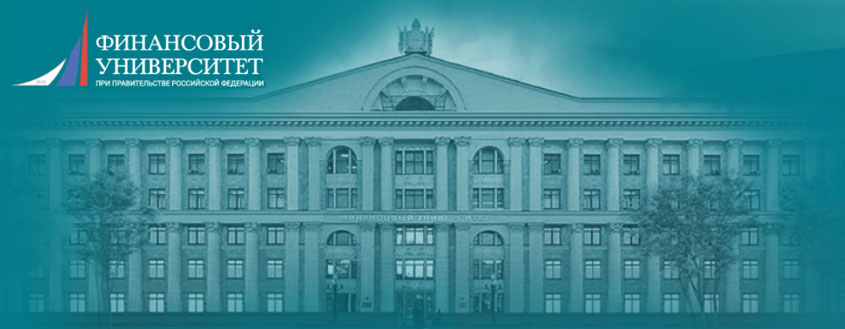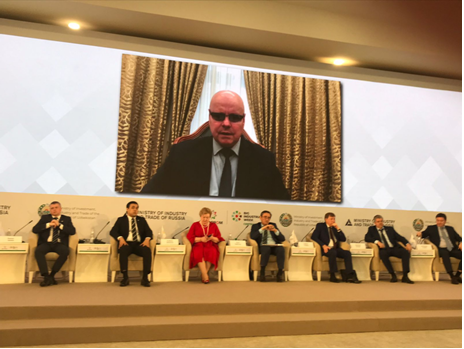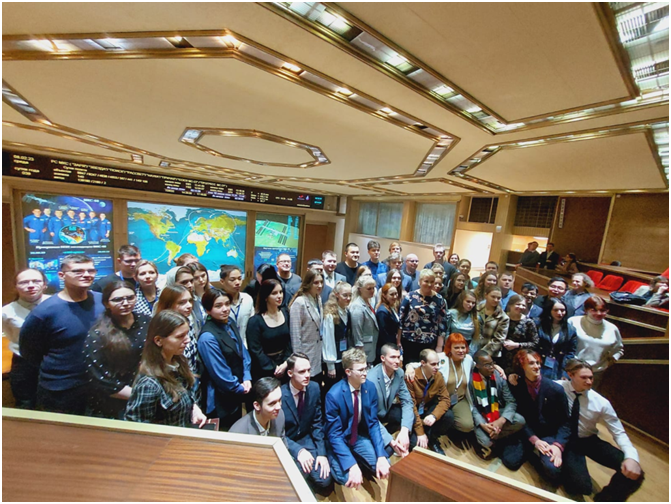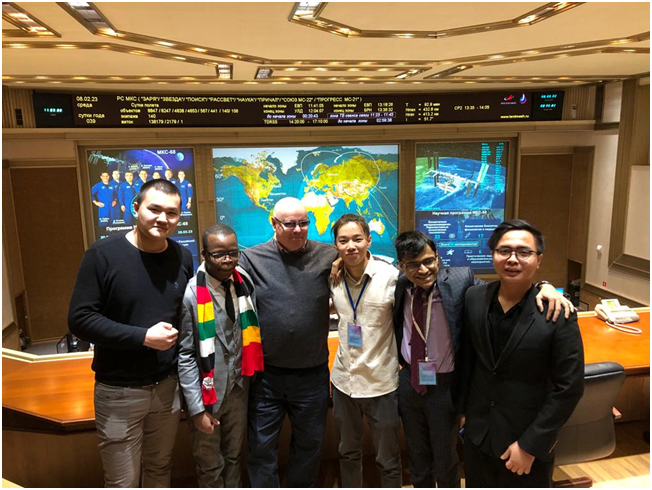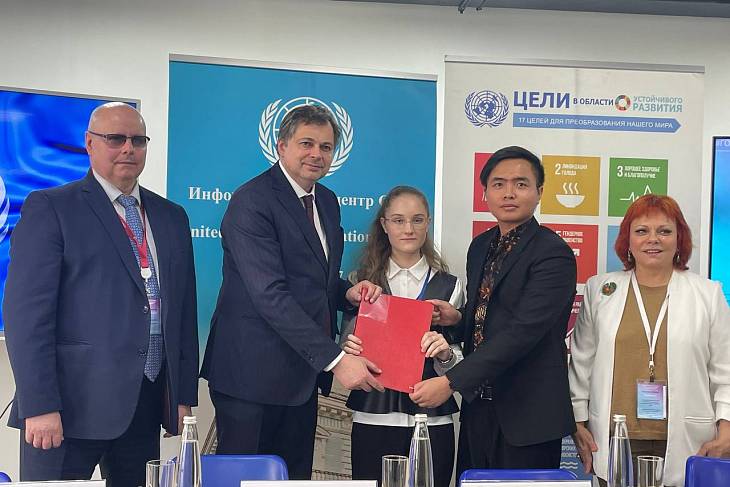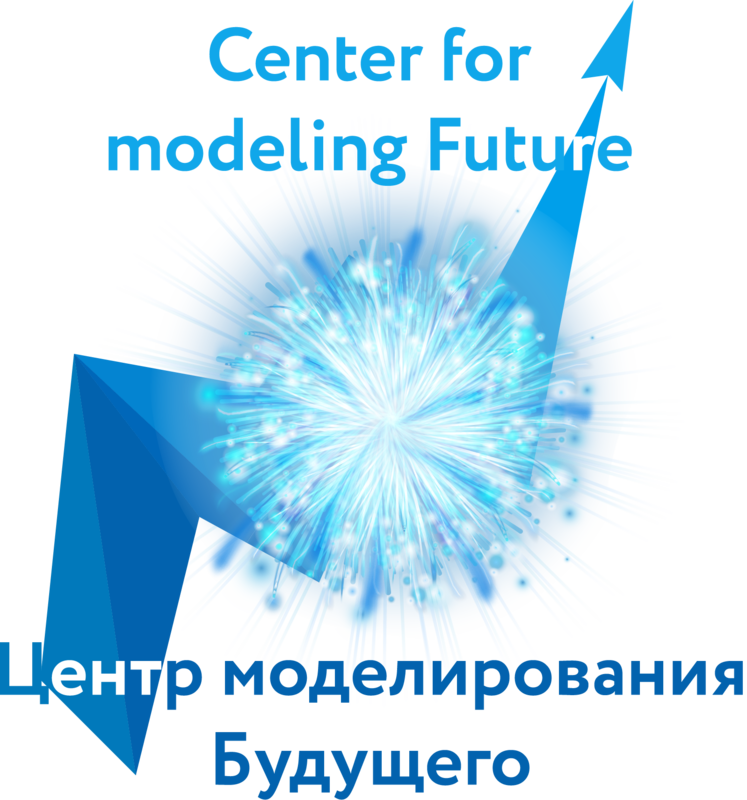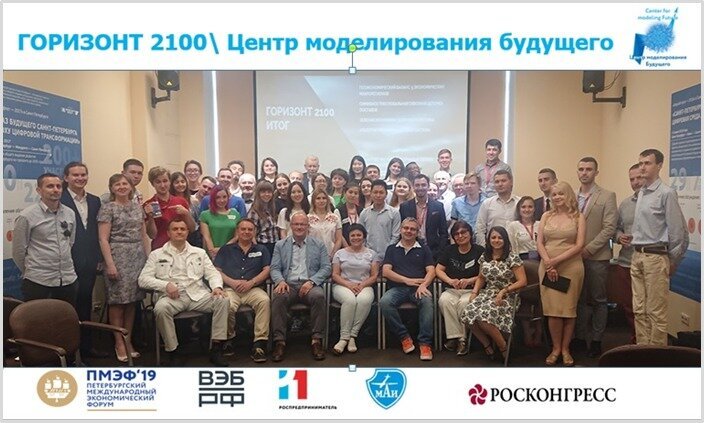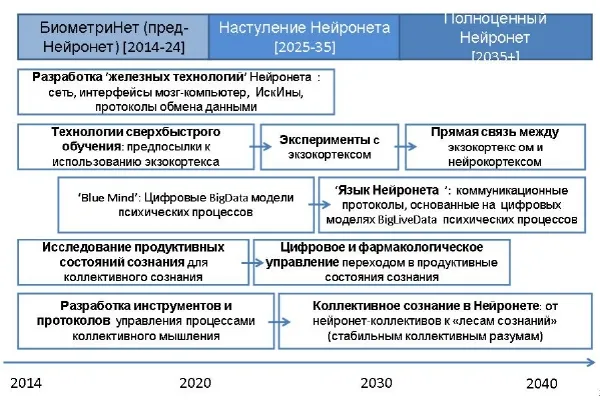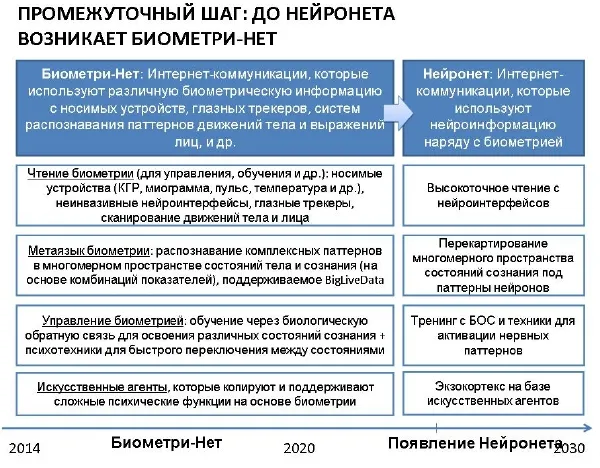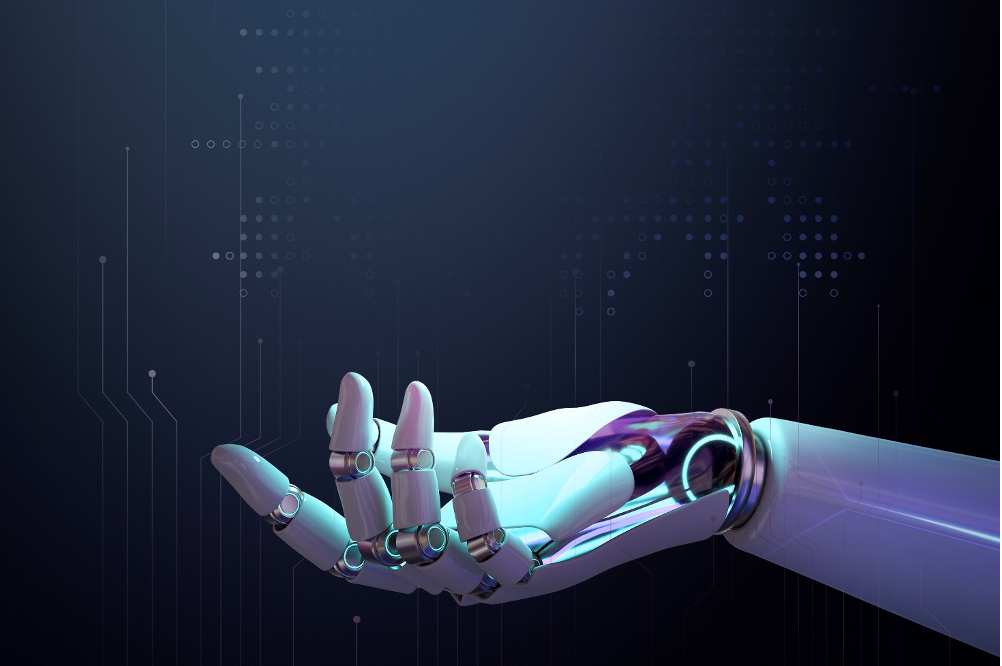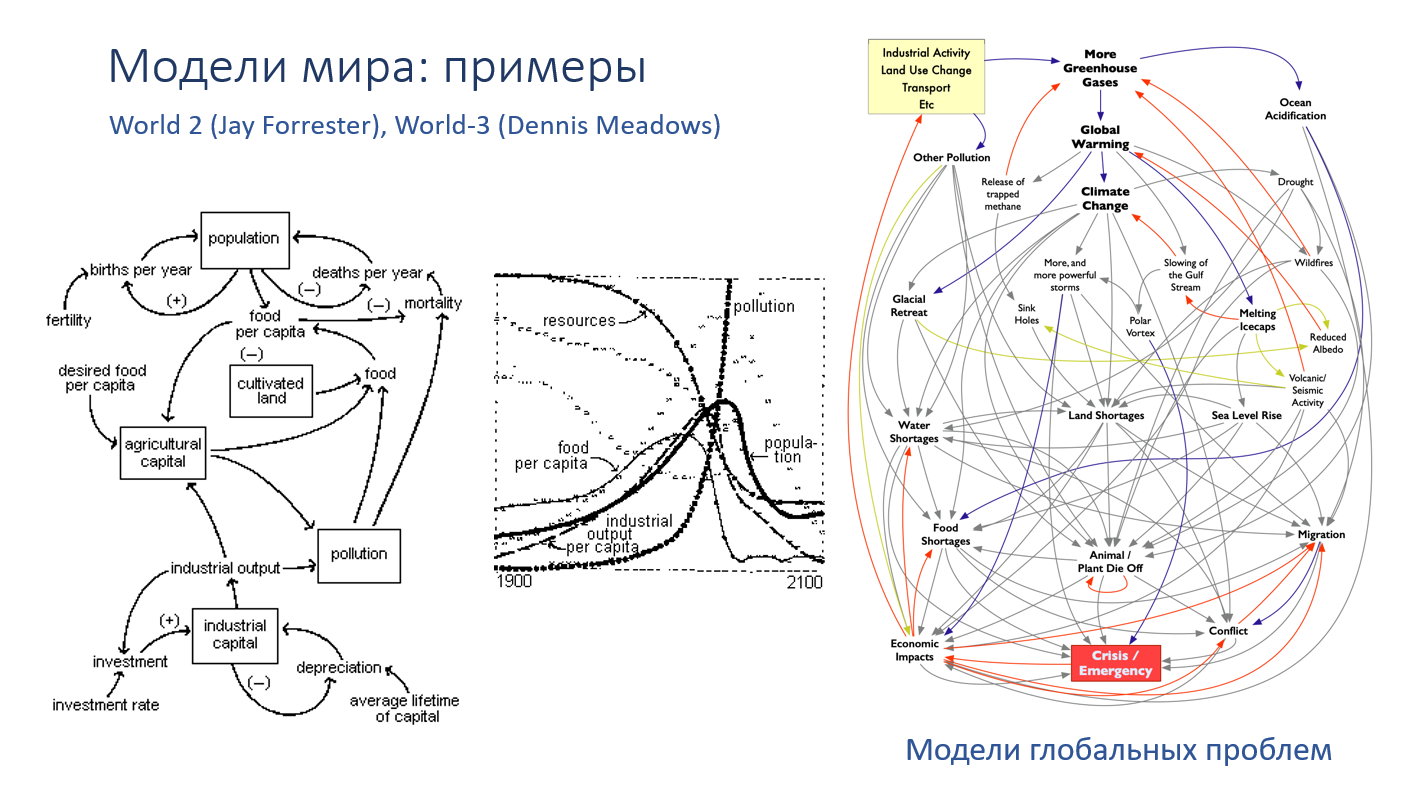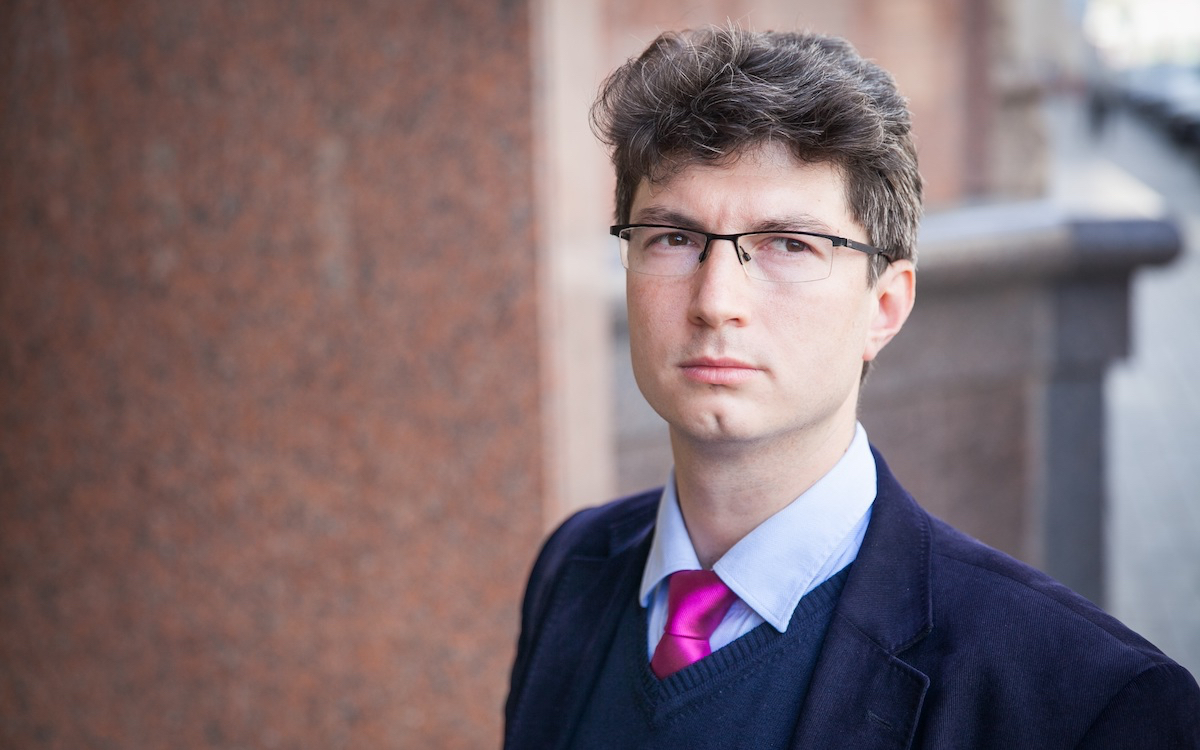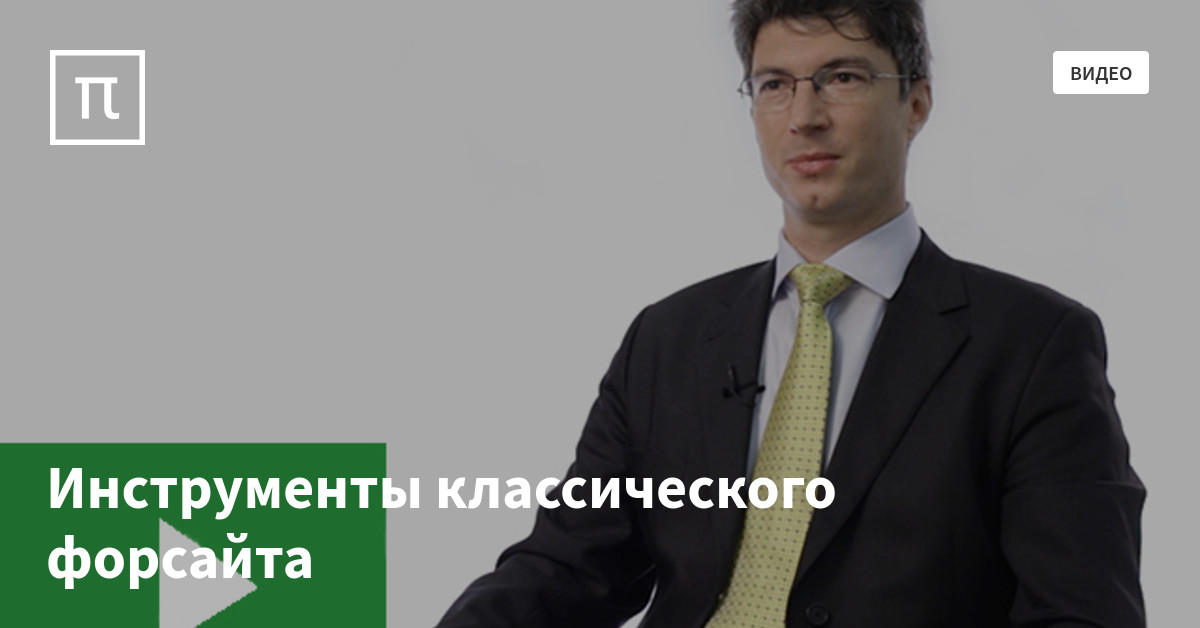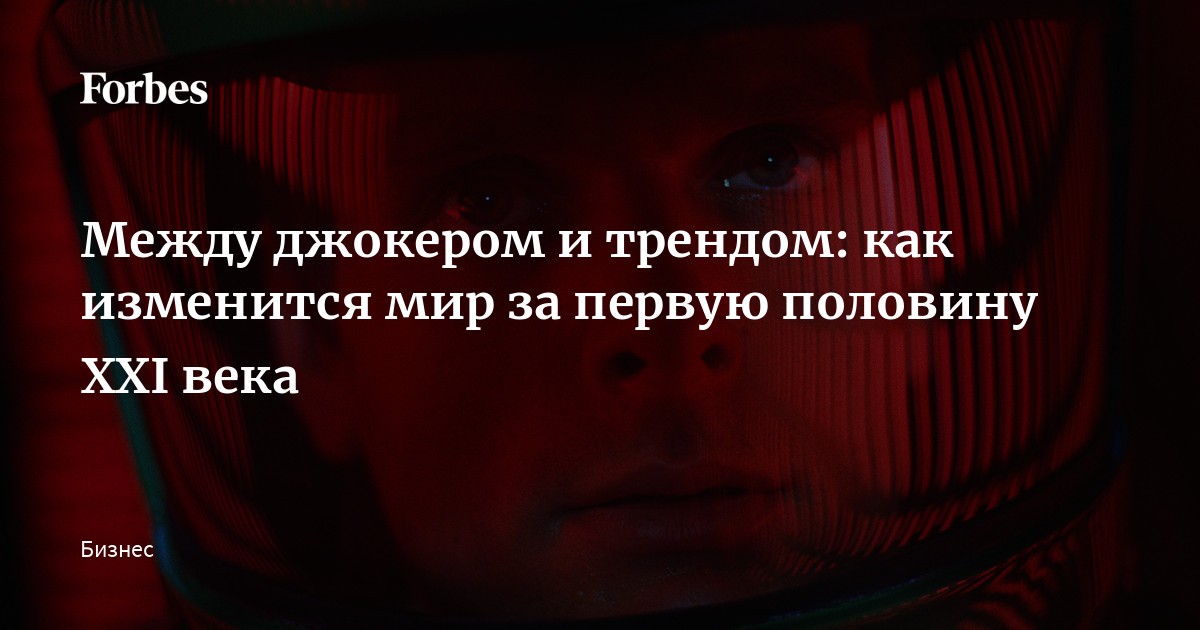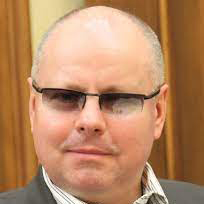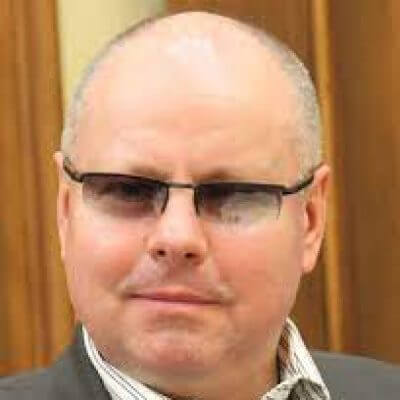Again to the Center for modeling the future, Horizon 2100, 2022
INTERDISCIPLINARY EXPERT FORESIGHT SESSION
The Fourth Industrial Revolution is unfolding before our eyes and along with the transformation of all economic and production processes, the introduction of revolutionary technological and cyber-physical innovations portends fundamental changes in the organization of all areas of human society. And today it is important to understand which way development will go and what will happen to the world by 2100? Where will the next waves of Industry 5.0, 6.0, 7.0, etc. lead our country and human civilization as a whole? How can we launch a mechanism for realizing the desired future, comfortable for us and future generations, in the face of complex sustainability problems?
Young people and experts who are passionate about future research tried to give answers to these topical questions within the framework of the Interdisciplinary Expert Foresight Session "The world, economy, society and technology in the context of complex sustainability problems: forecasts of the probable future by 2100", which took place from June 9 to 18, 2022 in Moscow and St. Petersburg.
The foresight session was the first stage of the International Youth Project "HORIZON 2100" in 2022 and is designed to set its further development vector. The first part of it was held in Moscow with the participation of young people and experts from Moscow, and the second part was held in St. Petersburg, where participants from the regions of Russia and other countries came. Grouped into several research groups, the participants of the session from 24 countries in the Foresight mode carried out reasonable forecasts of probable scenarios of the future and creative search for its models in such areas as the Man of the Future, the Future of society, the global world of the Future, the Future of science, Technology of the future, the Future of the economy, the Future of the environment and sustainable development, the Future of the human habitat, and also jointly modeled a holistic picture of the desired future by 2100, its specific trends, scenarios and indicators describing the main possible events., which will influence the achievement of the desired goals of the desired future, comfortable for present and future generations.
FORESIGHT SESSION, PART I – MOSCOW.
June 9-10, 2022 Boiling point of ASI
Moderator Danila Andreevich Medvedev [Chief Moderator of the forum; futurologist and transhumanist, Ph.D. in Economics, Director of "Neurocode", TV presenter "Science 2.0", member of the Coordinating Council of the Russian Trans-Humanist Movement]
On June 9-10, young Moscow participants of the Horizon-2100 forum and invited experts gathered at the Boiling Point site for a futurological session. The purpose of the session was to work out methods of system analysis of technological and industry trends.
The work used the model of the world system "Mir-4", developed with the aim of developing methods of global modeling and improving the classical model "Mir-3", used in the preparation of the classic report "Limits of growth" in 1972.
At the beginning of the session, leading Russian and international experts made presentations to the participants, highlighting various areas of the world of the future, from the future of technology and the economy to the future of the human habitat and society. The speakers sought to create a systematic vision and a mood for a holistic understanding of the future among the participants of the session. For example, Guy Eames, Chairman of the RuGBC Green Building Council, proposed a "holistic" approach to the description and modeling of the construction industry, including the industry's links to areas such as governance, quality of life, energy, transport, water supply, resources, sustainability, land use and pollution.
Other experts, including Andrey Nechaev, the First Minister of Economy of the Russian Federation, Boris Kochurov, a leading researcher at the Institute of Geography of the Russian Academy of Sciences, Vladimir Zavarukhin, director of the Institute of Problems of Science Development of the Russian Academy of Sciences, similarly revealed the work of other systems that determine a person's life and future.
Further, in the lecture by futurologist Danila Medvedev, participants were asked to choose from fundamentally different scenarios the one that seems more convincing and more likely. However, the questions were chosen in such a way as to stimulate discussion about radically opposite alternatives. Examples of questions: "Will we continue to eat and exterminate animals, or will we ban the use of meat and begin to upgrade and train animals?" "Will there be flying houses, floating cities, underwater colonies, or will we remain tied to the surface of the earth?"
"Reading and recording thoughts directly into the brain and transmitting thoughts telepathically and in contact with a computer will become are they possible or will we continue to communicate by voice and text?" etc. A heated discussion began, in which
representatives of the older generation, including experts and organizers of the forum, often expressed hope for a conservative scenario (for example, the preservation of eating meat), but under the influence of facts and arguments from young participants were forced to admit the likelihood of serious changes in the future.
...
Then the lecture gave a brief overview of the modeling of the world in the past, including the Limits of Growth project and the Mir-3 model. It was told about the Sustainable Development Goals and the main models of world development. For the work of the participants, a time frame was set from 2022 to 2100 and two intermediate dates were selected for modeling: 2030, by which the Sustainable Development Goals are planned to be achieved, and 2050, by which various countries plan to bring greenhouse gas emissions to zero in accordance with the Paris agreements.
The Mir-4 model used to model the world of the future included 50 separate domains – areas such as the fuel and energy complex, industry, corporations, global governance, innovation system, technologies, and so on, which are united by causal relationships. The roles corresponding to the domains were distributed among the participants.
The task of the participants was to predict the gradual development and evolution of individual domains, taking into account their influence on each other. Since different groups were responsible for different domains, participants had to communicate with each other, share results and think systematically about the world. For example, the development of agriculture influenced food production and demography, while being determined by technological development.
The participants were presented with a visual model of the system, and their work was organized using an online platform and was based on a cooperative, not a competitive model - participants helped each other in forming a system vision.
Almost all participants of the session noted that the use of this model helped them to better understand the interrelationships between the world subsystems and develop a more comprehensive view of the world. Like the game of go, which assumes that the masters not only strive to finish the game by winning, but also explore the possibilities of interaction, this system simulation was based on the values of cooperation and a systematic approach.
...
.. At the first training stage, the participants used a simplified model ("Mir-3" with seven elements, 1972), mastering game mechanics and practicing making predictions. Then the roles were distributed from the large model and the main work began. In between work, futurological mini-lectures were held on issues of personal strategies, global forecasts and everything in between.
Competition in the work of the teams was present in an unusual form. After the completion of the main stage of system work and analysis of forecasts prepared by participants and structured by analysts, the participants were presented with forecast development scenarios prepared on the basis of the Mir-4 model by artificial intelligence GPT-3.
AI forecasts contained such ideas as "In the 2020s, global governance will be determined by two trends, and the United States will be powerless to influence them. First, the United States will not control the Internet or any other global communications infrastructure. Secondly, the United States will not have as much influence in the world as it had before World War II, when the United States had an empire, or during the Cold War, when the United States was the only world superpower." "In the 2070s, the quality of life will decrease significantly. More people will die from the weather than from the coronavirus." etc.
In the final part of the scenario, AI noted: "By 2100, futurology will have to change its perspective. The only way out is to look at the future from the positive side. You have to turn a negative into a positive. So I decided to conduct a survey on how to do it. Let's start with the most important question: "How do you see the future of humanity?" The options are as follows: 1. We will destroy the Earth. 2. We will destroy each other. 3. We will not destroy ourselves. We will improve."
~~~~
Etc. - group into teams and, under the guidance of specialists, make predictions for the future.
~~~~
As a result, the first three places were taken by the teams "Technogics", "Alkonosty" and "Man of the Future".
Considering that some of the teams were not selected to speak at the session during the SPIEF, the Third Force team was formed on the basis of the X-Factor team from representatives of all other teams to prepare an integral picture of the world by 2100 in the format of the desired future at the SPIEF on June 18. Each team sent the best participant who joined the national team.
At the final stage of the work on June 17, four teams once again made final presentations, receiving comments and recommendations from the moderator and experts.
THE FINAL SESSION AT THE SPIEF:
"THE WORLD-2100 THROUGH THE EYES OF THE YOUNG",
As part of the Business program of the Youth Economic Forum XXV SPIEF, June 18, St. Petersburg, Peterburgskoe highway, 64/1
Thanks to the support of ROSCONGRESS, ROSMOLODEZH and the Office of the President of the Russian Federation for Scientific and Educational Policy, experts and participants of the winning teams that took 1st, 2nd, 3rd places, a total of 64 people from 14 countries, took part in the 25th anniversary SPIEF. On June 18, experts and participants arrived by bus at the Expoforum for the St. Petersburg International Economic Forum (SPIEF-2022) in order to present the results of their 4-day intensive intellectual work as part of the Youth Day (MMEF-2022). The true reward for the winning teams was the fact that their colorful, informative speeches and presentations of the winners of the Foresight on June 18 at 9:00 in the format of the final session of the Foresight - "The World 2100 through the eyes of the young" at the ROSMOLODEZH stand actually opened the Youth Day at the SPIEF and were able to present their ideas how they see the world of the future by 2100 year.
As part of the Rosmolodezh stand, our team leaders were able to present their ideas on how they see the world of the future. Among the main theses , the following were proposed:
1. Nature is returning\approaching its original state
2. The symbiosis of cities and nature with the supremacy of the biosphere, nature
3. Creative development of a person and creative activity
4. Economic independence of a person
5. Machine, artificial intelligence solves everyday problems of human life, major technical problems
Then the team leaders discussed the future of technological development:
- Disappearance of the technology entry threshold;
- Automatic creation of a personalized product;
- Huge increase in computing power;
- Technologies using non-classical physics;
- Introduction of nature-like technologies;
- Closed resource usage cycles;
- Micromization of technologies;
- Expansion of the functional capabilities of the human body;
- New ways of communication and information transfer;
- Space industry.
The interdisciplinary expert Foresight session was a success! When you see the "burning eyes" of the participants, their active work in groups to find models for the development of our future, passionate debates about what the World-2100 will be like, you understand that months of hard work, invested effort and time were worth the results we got!
~~
The result of the Expert Foresight session - long and detailed PDF of the
Rosscongress Foundation, which begins like this:
"ROSSCONGRESS
International Youth Economic Forum within the framework of the XXV St. Petersburg International Economic Forum
Center for Modeling the Future in Education, Science, Economics and Social and Humanitarian Sphere
International Youth project "HORIZON 2100"
Interdisciplinary expert Foresight session "The world, economy, society and technology in the context of complex sustainability problems: forecasts of the probable future by 2100"
ASI Boiling Point, Moscow, 9-10.06.2022; Polytech, St. Petersburg, 16-17.06.2022; SPIEF, St. Petersburg, 06/18/2022
I. DESCRIPTION OF THE PROJECT IMPLEMENTATION
"..technological development is a cross-cutting direction that will determine not only the current decade, but also the entire XXI century. ...we must first of all pay attention to the issues of economic growth based on technological development, on new models of economic management and the socio-political sphere."
From the speech of Russian President Vladimir Putin at the plenary session of the XXV St. Petersburg International Economic Forum, 06/17/2022
1.1. Introduction
The Autonomous non-profit organization "Center for Modeling the Future in Education, Science, Economics and the Socio-Humanitarian Sphere" in partnership with the V.A. Trapeznikov Institute of Management Problems (IPU RAS), the Institute of Problems of Science Development (IPRAN RAS), the International Research Institute of Management Problems (MNIIPU) with the financial support of the Presidential Grants Fund, The A.M. Public Diplomacy Support Fund. Gorchakova has been leading the HORIZON 2100 international youth project for the fifth year, implemented in the format of scientific competitions, forums, project schools, Foresight sessions, strategic business games, etc.
Historically, the idea of the project originated at the SPIEF in 2018. In 2019 at the SPIEF in the format of the session "Horizon 2100. How does the youth see the future?" The Center for Modeling the Future has already presented the project itself.
The project work is structured in such a way as to popularize science, involve thinking young people from different countries in the processes of forecasting, joint modeling of various scenarios of long-term development and arouse the desire to subsequently take responsibility for the formation of a favorable sustainable Future, comfortable for themselves and future generations.
The Project is also an effective resource of "soft power" and systematically influences the formation of value attitudes of the future scientific and technological elite of the countries participating in the Project. To date, it has covered more than 1,200 young people and experts from 63 countries who are passionate about research and designing the future. ..."
**
FORESIGHT SESSION, PART II – ST. PETERSBURG
June 16-17, 2022 Boiling Point POLYTECH,
Moderator Ageev Alexander Ivanovich
..
The foresight session was opened by moderator Alexander Ageev, Director General of the International Research Institute of Management Problems, Doctor of Economics, Professor. The participants of the session, the vast majority of whom were not familiar with each other before, were introduced at a rapid, motivating pace, personal distribution into groups was carried out, research groups were "tuned" to Foresight games and the development of Foresight projects. In total, 9 groups were formed, including the "X-factor" groups.
As part of the Foresight session, each research group had to carry out a phased development of a portrait of the future in its direction by 2100, separately stopping at 2030 and 2050. Accordingly, at each round of the Game, the protection of project versions took place. In addition, during the development stages of the 2050 and 2100 models, it was proposed to indicate the forces, drivers that should give the main impetus to the development of specific attributes, as well as the risks that will accompany the attributes or arise on their basis. The work of the teams at each stage was provided by the moderator and his assistants, answering all the questions of the participants, as well as providing the necessary technical and organizational support. ..."
From participants' feedback:
...
Vyacheslav Ilyichev Alexandrovich, Russia
Doctor of Technical Sciences, Academician of the Russian Academy of Architecture and Construction Sciences (RAASN), Head. Laboratory of Geotechnics of the Research Institute of Construction Physics, Professor of the Moscow State University of Construction, Vice President of the RAASN
Foresight Horizon-2100 is a vision of the future and, of course, we all dream of a wonderful future, but the very fact of a dream implies the possible presence of some difficulties that will have to be overcome.
Our youth team "Globalists" included bachelors studying management in agricultural production and bachelor Orientalists studying Oriental philosophy. The team consisted of specialists providing the extreme points of the range of human needs: food and a philosophical assessment of the meaning of life, which made it possible to consider intermediate needs, and against their background to address global problems. As such, the relationship between man and nature is considered and the need to take it into account when predicting the future is recognized.
It is advisable to change people's attitude to the biosphere. Humanity is generated by the biosphere and must serve the mother organism. It is necessary to recognize the supremacy of nature over human civilization, because environmental problems unsolvable for a long time cast doubt on the prosperous future of humanity and can turn fantasies into illusions.
At the final meeting of the Horizon-2100 Forum, held within the framework of SPIEF-2022, it was proposed to include the planet Earth in the legal field of humanity, which will allow solving environmental problems cost-effectively on a new basis and ensuring the symbiosis of man and the biosphere.
~~
Farah Suheil Naim, Lebanon-Russia
Academician, foreign member of the Russian Academy of Education, Professor, President of the Open International University Dialogue of Civilizations, Co-Chairman of the jury of the HORIZON 2100 competition
...
In the end, it should be noted that despite the difference in all the subjects presented, they were united by such common themes as transhumanism, the future of science, the future of man - human values in the spirit of the modern movement. These topics are relevant today. No matter how fast humanity develops, no matter what scientific achievements and discoveries are made, with all the progress it is necessary to remain human, cherish the moral concepts of human values and preserve those features that our sages and prophets proclaimed in the distant past.
~~
Zavarukhin Vladimir Petrovich,
Ph.D. in Economics, Director of the Institute of Problems of the Development of Science of the Russian Academy of Sciences (IPRAN RAS)
...
Digital technologies will significantly change the science of the future, providing scientists with new tools for understanding the Universe. Computer modeling, quantum computers, AI and robotic systems will make research processes more interesting, allow talented scientists to make even more discoveries and accelerate scientific progress. ...
~~
Zheltikova Inga Vladislavovna, Russia
Candidate of Philosophical Sciences, Associate Professor of the Department of Philosophy and Cultural Studies of the I.S. Turgenev Oryol State University
Ideas about the future, an emotional attitude towards the future, visual and auditory images of the future are an integral part of the actual social reality. How we think about the future, what models we create in our minds, depends on how we behave in the present. Positive expectations aim us to strengthen and develop those trends that are assessed as promising. Negative premonitions generate fear of the future, the desire to prevent the alleged threats.
It is possible to distinguish between individual and collective ideas about the future. The imagination of the future by an individual is largely subordinated to those images of the future that function at the level of public/collective consciousness. ...
***
The project was implemented using a grant from the President of the Russian Federation for the development of civil society, presented by the Presidential Grants Fund.
The organizer of the foresight session is the Center for Modeling the Future, partners and co-organizers are the Presidential Grants Foundation, the International Research Institute of Management Problems, Peter the Great St. Petersburg Polytechnic University, the V.A. Trapeznikov Institute of Management Problems of the Russian Academy of Sciences; the Institute of Problems of Science Development of the Russian Academy of Sciences.
*** *** ****
COMPETITION «HORIZON-2100»'22 - RESULTS
The main purpose of the Competition is to motivate thinking youth from different countries with an active lifestyle to carry out a creative search for scientific, scientific-practical ideas, hypotheses, and sci-fi ideas about the distant future; identify the best gifted and active young people who are passionate and capable of scientific creativity, analysis and forecasting of the future.
REGULATION
ABOUT THE INTERNATIONAL YOUTH COMPETITION OF SCIENTIFIC, SCIENTIFIC, PRACTICAL AND SCI-FI WORKS "HORIZON-2100"
...
2.2. The goals and objectives of the competition
2.2.3. Identification of works offering the best solutions aimed at:
- reducing the vulnerability of humanity in the face of future pandemics;
- creation of prerequisites and mechanisms in any spheres for the development and strengthening of mankind's resilience to possible future challenges;
...
.2. Competition is carried out according to the following profile directions:
Human of the Future:
- Health: treatment, preservation and strengthening of health and ability to work (including disease prevention, medical and environmental rehabilitation, healthy lifestyle and nutrition, medical and biological recreation, etc.);
health - national and global systems; AI technologies (including mechanical or electronic devices integrated into the body - cyber-physical systems; "smart" and growing prostheses; medical exoskeletons, etc.); human existence in a microgravity environment, consequences and mutations; bioethics of human reproduction in space; legal and ethical aspects of human reproduction, life extension;
...
Future of the Global World:
..
- World order: unipolar, multipolar or multipolar. Evaluation of a multipolar world: "islands", federations of states or confederations. Will the waves of Industry 5.0, 6.0, 7.0, 8.0, etc. to the creation of a planetary super-civilization in the 21st century?
...
Future of Technologies:
- New technological waves and new technological paradigms; AI, digital environment, bionics, blockchain technologies, business intelligence, nanotechnologies, nano and cyber-physical technologies in medicine, computational nanotechnologies and nanosystems, hybrid intelligence, technologies for creating fundamentally new food products and other key technologies, ethical issues of creating an artificial person, unification of information and biotechnologies into a single system;
- Modeling the process of thinking, intelligent systems, expanding the scope of artificial intelligence, machine learning, deep learning of neural and analytical networks, the Internet of things, robotics, augmented reality and virtual reality, global networks, the "dark side" of the digital future.
...
Future of the World Economy:
..
- Industry 5.0, 6.0 and subsequent waves of Industry 5.0, 6.0, 7.0, 8.0, etc.: system transformation and a new level economy (including innovative business ecosystems, smart infrastructure, platform business models; long-term forecasts,
planning and systems management based on Big Data, Blockchain in all industries, etc.); prospects for the development of a cognitive, behavioral and sharing economy; the evolution of money; green economy, a new model of economic structure and restructuring of the foundations of industries.
...
Future of the Environment and Sustainable Development:
-
Science of sustainable development; sustainable development research; biosphere resources, social structure, geoecology and geography, agroecology,
the second "Green" revolution in the context of sustainable development, resource development and the impact of production on the environment, problems of organic pollution, space debris; renewable energy sources, non-traditional energy sources, energy saving, heat supply, energy and security, sustainable energy resources;
-
Environment, local, regional and global ecosystems, biodiversity; global climate change, anthropogenic impact factors, consequences of climate change; organizational and legal mechanisms of nature management, management in the field of nature management and protection of the natural and environment, public environmental relations.
...
Future of Human Habitat:
- Living environment on Earth - urban planning and urban planning, landscape architecture and planning - architectural, engineering and environmental parameters; urban, rural development, smart city infrastructure, types of future housing and digital tools, evolution and perspectives of digital design tools in the context of housing design...
.....
...
PROJECT PARTNERS
Ministry of Science and Higher Education of the Russian Federation, SPIEF 2022, International Research Institute of Management Problems, American University in Moscow, (and others)
with the support of the Presidential Grants Fund
**** ****
WORLD 2100: GLOBAL TRENDS AND PERSPECTIVES ON THE FUTURE OF YOUTH
From February 5 to February 9, 2023, the International Youth Forum "World 2100: Global Trends and the Future through the Eyes of Youth" was held in Moscow. Its participants are the winners of the international youth competition of scientific and sci-fi works "HORIZON 2100", held in the fall of 2022.
...
The objectives of the forum are:
• To awaken the interest of talented thinking young people in the science of prognostics, to involve them in joint work with the future, to intensify the desire to understand its possible versions, to determine the contours of development at the turn of the 21st century, to propose ways and prospects for development and the trajectory of movement into a multipolar world and a "different" future that works in the interests and for the benefit of Russia, other countries participating in the project, and humanity as a whole.
• To promote the strengthening of traditional social, economic, scientific, technical, socio-cultural ties, betting on increasing the trust and objective and attractive image of our country, the power of its natural, intellectual, scientific and technological resources in the eyes of representatives of the foreign scientific, expert, business community and youth - the future scientific, intellectual, business and political elite of Russia and other countries.
Center for Modeling Future, the main organizer of the project, is aware that the tasks and expectations assigned to young people require effective multilateral cooperation of all parties involved in the process of modeling the future, therefore, all possible conditions were created for the forum participants at the Presidential Grants Financial Fund and powerful intellectual support was provided. For reference, 778 schoolchildren took part in the competition in 2022, students and young people from 21 countries, and in general the project "HORIZON 2100" for 5 years of implementation, covered more than 2000 participants, experts, volunteers from 75 countries.
KEY PERSONS OF THE FORUM
Irina Osokina, Author-developer and head of the International Youth Project "HORIZON 2100", Ph.D., Chairman of the Council of the Center for Modeling the Future
Yuriy Sidelnikov, Chairman of the International Jury of the contest "HORIZON 2100", Doctor of Technical Sciences, Chief Researcher of the Institute of Control Problems named after V.A. Trapeznikov of the Russian Academy of Sciences, Professor of MAI
Alexander Ageev, Chief moderator of the forum; Doctor of Economics Professor of MGIMO, Head of the Department of MEPhI, Director General of the International Research Institute for Control Problems
Olaf Hauer, Germany, Co-moderator of the forum, managing partner of the international team iNTG, licensed trainer of the international training academy BMW, licensed coach of the Association of German Psychologists
SCHOOL OF FUTURE SKILLS
On February 6, in continuation of the School of Future Skills, which was opened by Olaf Hauer, the participants listened to a block of lectures from invited speakers: within the framework of the plenary session, participants received knowledge of the basics of futurology, Foresight and strategic planning.
Lectures were presented on the following topics:
• "World 2100: Global Trends and Risks: What Threatens the Future of Our Civilization?"
"A century-long road: global trends through the prism of classic Foresight"
• "The emergence of superintelligence and the disappearance of oil. Can GPT operate without coal-fired power plants and why will the fate of 2100 be decided much earlier?"
• "Energy-efficient green building – a global trend in the cities of the future?"
• Technologization of creativity as a platform for designing the future"
A discussion block was also organized, where participants were able to discuss the topics raised by experts, as well as speculate on the topic of future trends and changes.
FORUM EXPERTS
Dmitry Aleksandrovich Egorchenkov, Director of the Institute for Strategic Studies and Forecasts of RUDN University
Alexander Alexandrovich Chulok, Doctor of Economics, Director of the Center for Scientific and Technological Forecasting of the HSE ISSEK, Associate Professor at the Department of World Economy, Faculty of World Economy and International Affairs, Higher School of Economics
Danila Medvedev, applied futurologist and transhumanist, director of the NeuroCode project, TV presenter of Science 2.0, member of the Coordination Council of the Russian Trans-Humanist Movement
Guy Alexander Eames, United Kingdom, Director of Planet 2030 ltd –UK, Chairman of the Green Building Council RuGBC – Moscow
Alexander Khrebtov, Belarus, Development Director of the Center for Creative Technologies "Ideal Solutions", Vice-President – Deputy Chairman of the Board of the National Chamber of Technology, member of the Subcommittee on Energy of the Committee on International Cooperation of the Russian Union of Industrialists and Entrepreneurs
...
FORSYTH
On February 7, teams formed by directions, the main actors of the forum in the mode of team foresight sessions generated project predictive images of the future. To work out the main topics of the project, 9 teams were created, one of which created a project that unites the ideas of all teams.
PREDICTORS - The Future of Global Peace and International Relations
Baronet - The Future of Science
TRIQUETRA - The Future of Society
Techno-Priests - The Future of Technology
LIGHT OF THE FUTURE - Man of the Future
ATREEN - The Future of Energy
NEW STABLE WORLD - The future of the environment and sustainable development
Inhabitants - The Future of the Human Environment
Teams’ work results
...
RESULTS OF THE FORUM
For several days, young visionaries aged 16 to 26 years, together with top experts from Russia, Great Britain, Germany and Belarus, conducted Foresight studies of possible models of the future and formed a new - long-term - strategy for the sustainable development of the global world and the contours of the "other" future, working for the benefit of Russia, and humanity as a whole.
The main ideas on the long-term strategy formed the basis of the Message to the People of Peace, which was handed over to the Director of the UN Information Center Vladimir Kuznetsov at a
briefing on February 8.
...
SOLEMN CLOSING CEREMONY OF THE FORUM
And then the final of the forum was held at the "Boiling Point" of the ASI - the teams presented their projects to the court of a high jury, which included youth images of the future evaluated by the forum's experts and honored guests. According to the results of the evaluation of the projects by the international jury, the first place was won by the project of the team "Techno-Priests"("Techno-zhrets") - the future of technology; the second place was takenby the teamsand "Trikqetra" - the future of society, The honorable third place was won by the team "Light of the Future" - Man of the Future.
"Techno-Priests" (
pic)
Our team of "Tech Priests" made the following attempt to predict the future for 2030 – consideration of the legal aspects of the recognition of artificial intelligence.
...
As a result, it was concluded that AI poses a great threat to humanity, despite its capabilities, without strict monitoring and fixed legal rights. Therefore, proposals submitted for discussion within the framework of the UN are necessary. The very first and necessary thing is the creation of a separate committee in the UN structure to solve economic, legal, ethical issues related to AI.
"Trikqetra" - the future of society (
pic)
"The Future of Society" offers the following model of the future:
International relations will be based on the principles of cooperation, mutual understanding and mutual assistance. The economy of the world community will switch to space trade, which will help resolve socio-economic problems in society.
Science will become a platform for AI and human interaction aimed at achieving a common goal – the formation of a better future.
In 2100, the society will use nanomaterials that will be suitable for construction in space, and will also act as resources that ensure favorable human life.
The man of the future, in our opinion, will be a symbiosis of Homo sapiens with a robot. It will be a radically new kind of intelligent being that will acquire the properties necessary for longevity.
For convenient communication in society, everyone will have access to quantum computers. We, as representatives of society, hope for the safety of such technologies.
The problems of ecology and energy will be solved by creating smart cities in every part of the world, where perfect waste recycling systems will be installed and devices for eco-friendly energy production will be installed.
"Light of the Future" - Man of the Future (
pic)
...
The paper considered in detail the issues of human segregation as a phenomenon of concern to modern society, voiced the types of segregation, showed the consequences for the future and the impact of segregation in the present, and also gave preventive measures for the types of segregation in the future.
Next, human relationships were shown, where infringement on the basis of sexual orientation has become a relatively rare phenomenon, but at the same time, the problems of the relationship between humans and robots, humans with AI, as well as the problem of natural childbirth have worsened. The general decision was made that this problem should be monitored, but, in general, the process is in full swing and it is not worth slowing it down because the forecast is generally optimistic, although the way to achieve it is difficult despite the fact that all necessary measures are being taken.
With respect to a person who is degrading, a curve of falling human intelligence coefficient was presented, which, alas, does not give comforting forecasts for the future. In addition, the habits and inclinations of a person that cause concern among physiologists today are voiced, as well as a forecast for the future of morphology and physiology of a person of the future is voiced.
In the end, the question of the displacement of a person by the product of his own mental activity – AI was raised, statistics were given on the scale of the problem and the difficulties of preserving a person's place in the future.
Then the question was raised about the possibility of merging humans and AI as an alternative to displacing one intelligent creature by another.
Regarding the decision, an agreement was made to meet again with up-to-date data on this matter.
Thus, in general, the team's forecast regarding the future is optimistic because we ourselves are the builders of the future and as long as we believe in the future, we are able to change it for the better."
~~
The project is implemented with the support of the Presidential Grants Foundation, as well as organizational, expert and information support of the Gorchakov Public Diplomacy Foundation, the V.A. Trapeznikov Institute of Control Problems of the Russian Academy of Sciences, the International Research Institute for Management Problems, the Institute for The Development of Science of the Russian Academy of Sciences, ROSSOTRUDNICHESTVO, the UN Information Center in Moscow, the Moscow House of Public Organizations of the Committee for Public Relations and Youth Policy of the city Moscow, ROSMOLODEZH, the Ministry of Education of the Russian Federation, the Ministry of Science and Higher Education of the Russian Federation.
~~ ~~
The combined result of the work of the teams – presentation
...
KEY FIGURES
ALEXANDER AGEEV
Russia
Director General of the International Research Institute of Management Problems, President of the International Academy of Future Studies.
"It's easy to talk about the future, especially the distant one. The reason for this lightness is simple – the irresponsibility of this future. Irresponsibility breeds irresponsibility and flight of creative imagination.
This situation, turned into "here and now", is not just normal for cognition of the world, but also deeply positive. We, like early children, can imagine this distant tomorrow beautiful.
At least because there is a huge and mysterious life ahead. And we really want this "beautiful far away" not to be cruel to us.
Children learn a lot about the laws of life in games and fairy tales. As we grow older, we usually forget them and do not suspect that they have imperceptibly given us important skills, knowledge and guidelines.
The Horizon 2100 project, uniting the youth of dozens of countries, has become a gaming laboratory of the future. I have no doubt that in 2100, some of the project participants will be genuinely surprised at how insightful the vision of the future was in 2023 and the ideas born now are viable in 2100."
